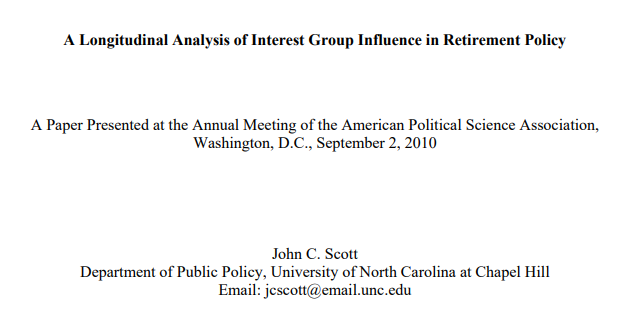In this article, John C. Scott analyzes the interaction of interest groups and how they benefit each other within the retirement policy lobbying realm. Scott argues that interest groups find it mutually beneficial to belong to a network of similarly interested organizations as these networks reduce the costs for government agents when they are tasked with searching for expert witnesses and appropriate testimonies. In this essay, influence is analyzed as an output, rather than an input in the political ecosystem. Ultimately, Scott argues that lobbying organizations become influential through their membership in groups and in association with other lobbying organizations. In future studies, Scott plans to analyze the effect of these relationships on policy making.












